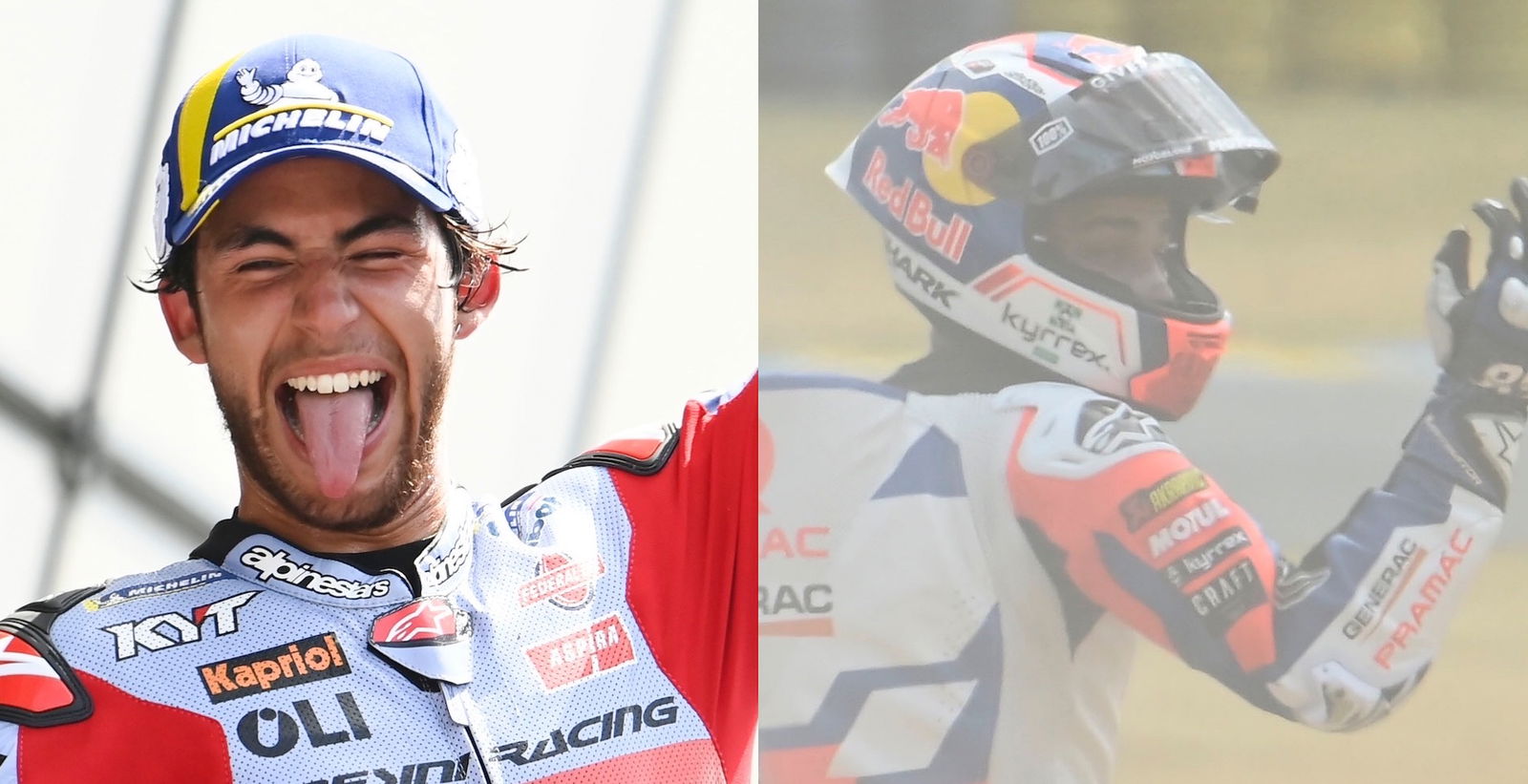Bastianini wins again, as overtaking issues continue | MotoGP Winners and Losers
Round seven of 2022 MotoGP took place in Le Mans, as title contenders faltered, rain threatened, and ground was won and lost in the contract battles.

THE seventh round of the 2022 MotoGP World Championship looked for all the world as though it would be rain-affected. Weather reports throughout the weekend suggested the MotoGP race would start at the same time as a downpour would hit the Le Mans circuit. In the end, the race took place under sunshine, but the weather reports were not the only losers, and, of course, there were some who left the French Grand Prix with plenty to be happy about.
Winner - Aleix Espargaro
Aleix Espargaro took his third front row and his third podium in succession in Le Mans. Since his victory in Argentina, only the Texas race has been a disappointment for the factory Aprilia rider, who now only trails World Championship leader Fabio Quartararo by four points in the Riders’ standings.
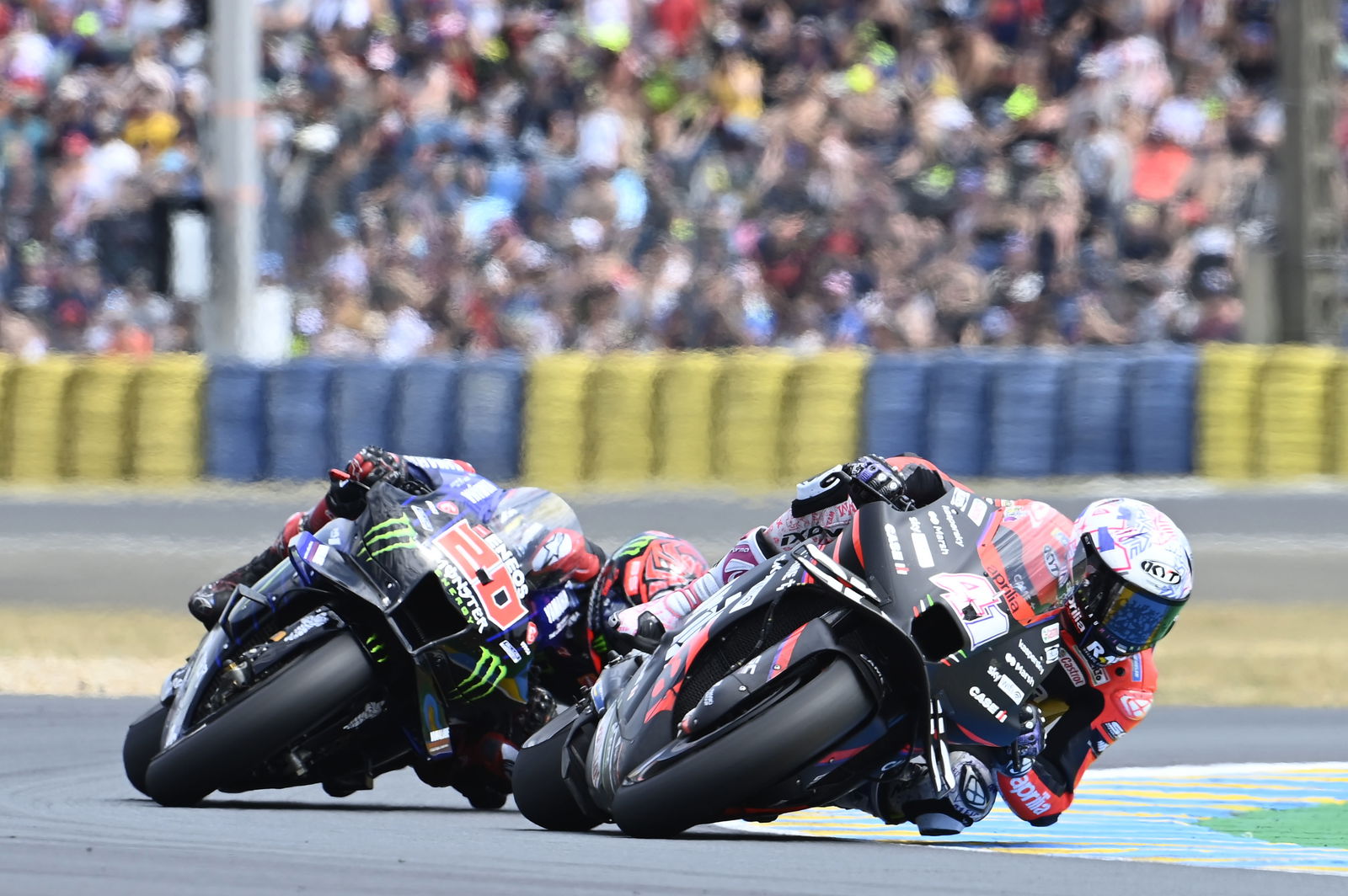
Additionally, the French Grand Prix was the first race since Argentina that Espargaro has beaten Quartararo, which is an important thing for the Spaniard’s title chances. Beating the Frenchman at one of his best tracks should not go understated for the #41, who with each passing race indicates more and more that he is in fact a genuine title contender. And yet, Aprilia cannot pay him what he wants.
Next up is Aprilia’s home race, the Italian Grand Prix in Mugello and, while there will certainly be an army of Ducatis looking to take victory in Tuscany, the Aprilia’s sweet handling could well bring it into the window for a second victory.
Winner - Fabio Quartararo
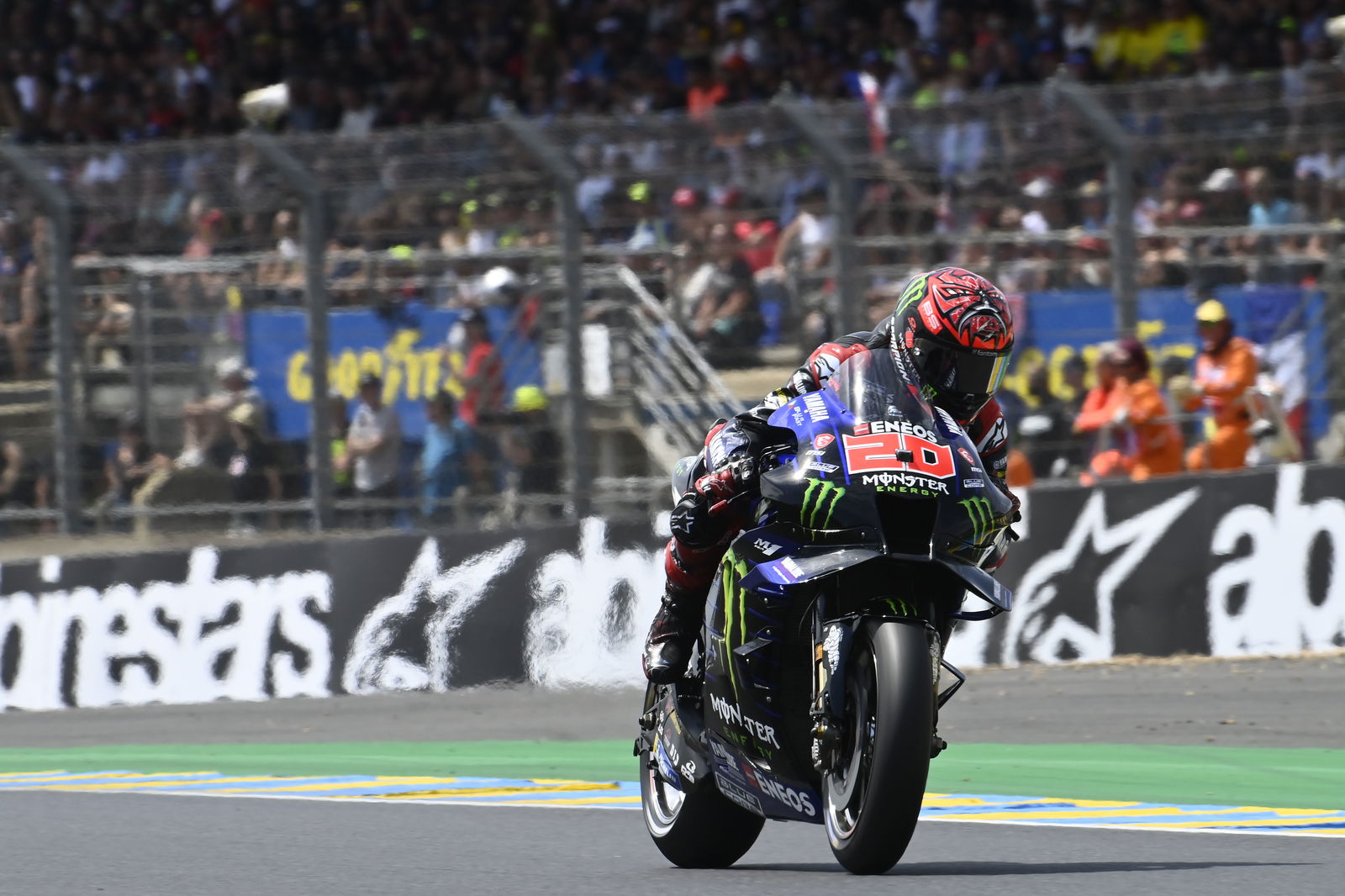
Fabio Quartararo went to Le Mans once again hoping to become the first French rider since 1954 to win his home Grand Prix. But, qualifying destroyed his chances.
Yamaha’s strength continues to be corner speed, of course, while its deficit in the straight continues to grow. That makes overtaking difficult for the riders of the YZR-M1, and so even though Quartararo had two or three tenths in hand on the field in the race pace-indicative FP4 on Saturday, he was unable to exhibit that on Sunday because he qualified on row two.
As low as sixth at one point, Quartararo ended fourth. Not even on the podium at his home Grand Prix. So, how can he possibly be a ‘winner’? Because he banked points, when his biggest championship rival - who we will come to later - did not.
Winner - Enea Bastianini
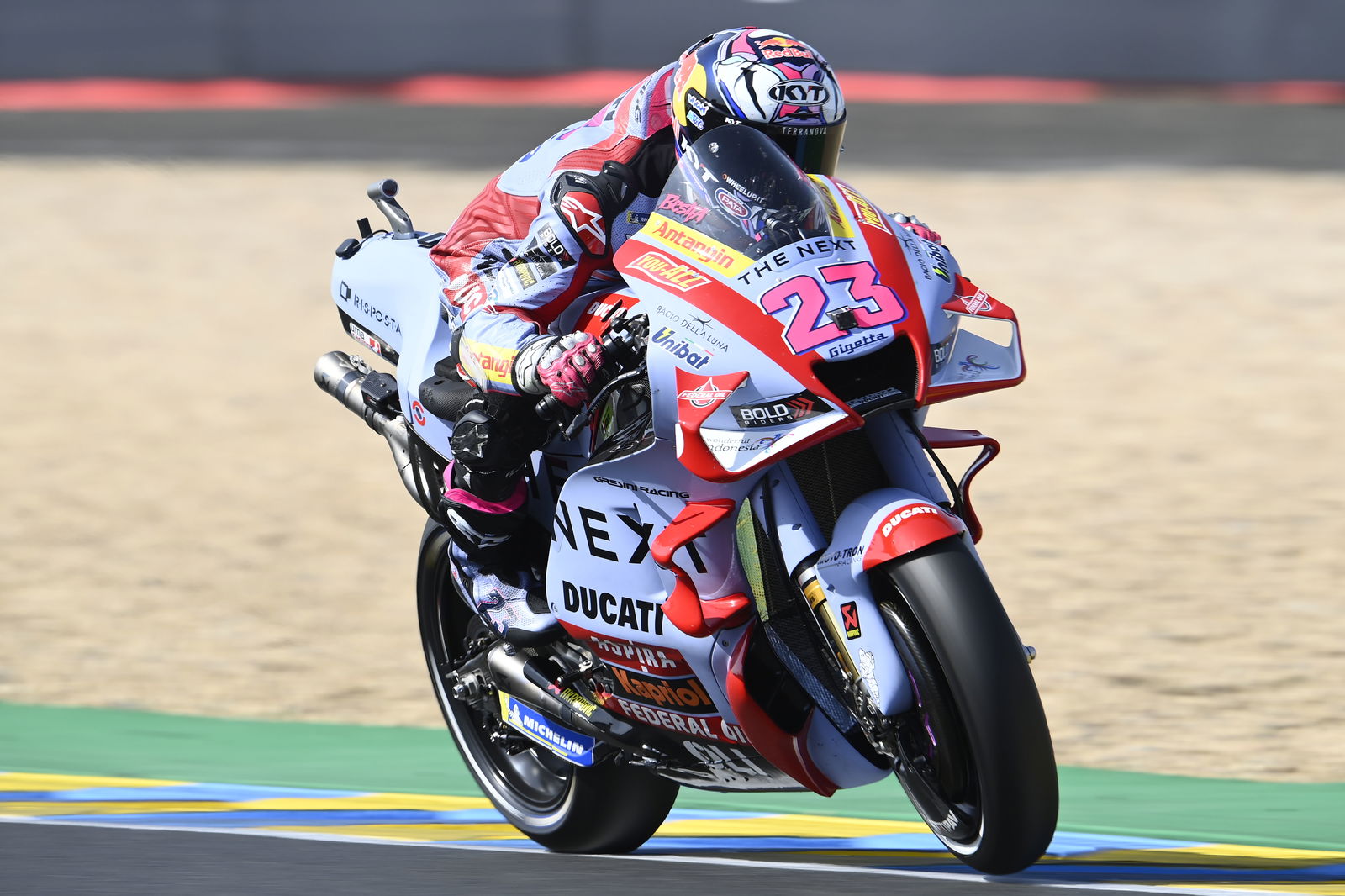
One of the aforementioned Ducatis which Aleix Espargaro will have to fend off at Mugello in two weeks time will probably be the Gresini Racing GP21 of Enea Bastianini. The #23 picked up his third victory of the season in Le Mans, despite crashing three times through the weekend.
Bastianini’s pace ultimately proved undeniable, as he came from fifth to challenge for the lead by the two-thirds point, and, when Francesco Bagnaia crashed, the win became almost guaranteed for ‘La Bestia’, who has proven to be one of the most potent riders in the final part of races.
One of the keys to Bastianini’s success was his choice of front tyre. He chose the medium-compound Michelin front, like Bagnaia, Espargaro, and Quartararo. Jack Miller, who finished second, chose the soft-compound front.
Miller said the medium would cool down too quickly, which meant it was complicated to get a good feeling from it. The Australian had used the medium-compound twice through the weekend, and crashed with it both times. So, for the #43, the soft was the obvious choice, even if it meant he would run out of grip in the last laps.
Bastianini, though, was able to flirt the medium-compound line between brilliance and disaster for the whole race, and the extra durability of the medium compared to the soft was what allowed him to put time into Miller at the end of the race.
Loser - Francesco Bagnaia
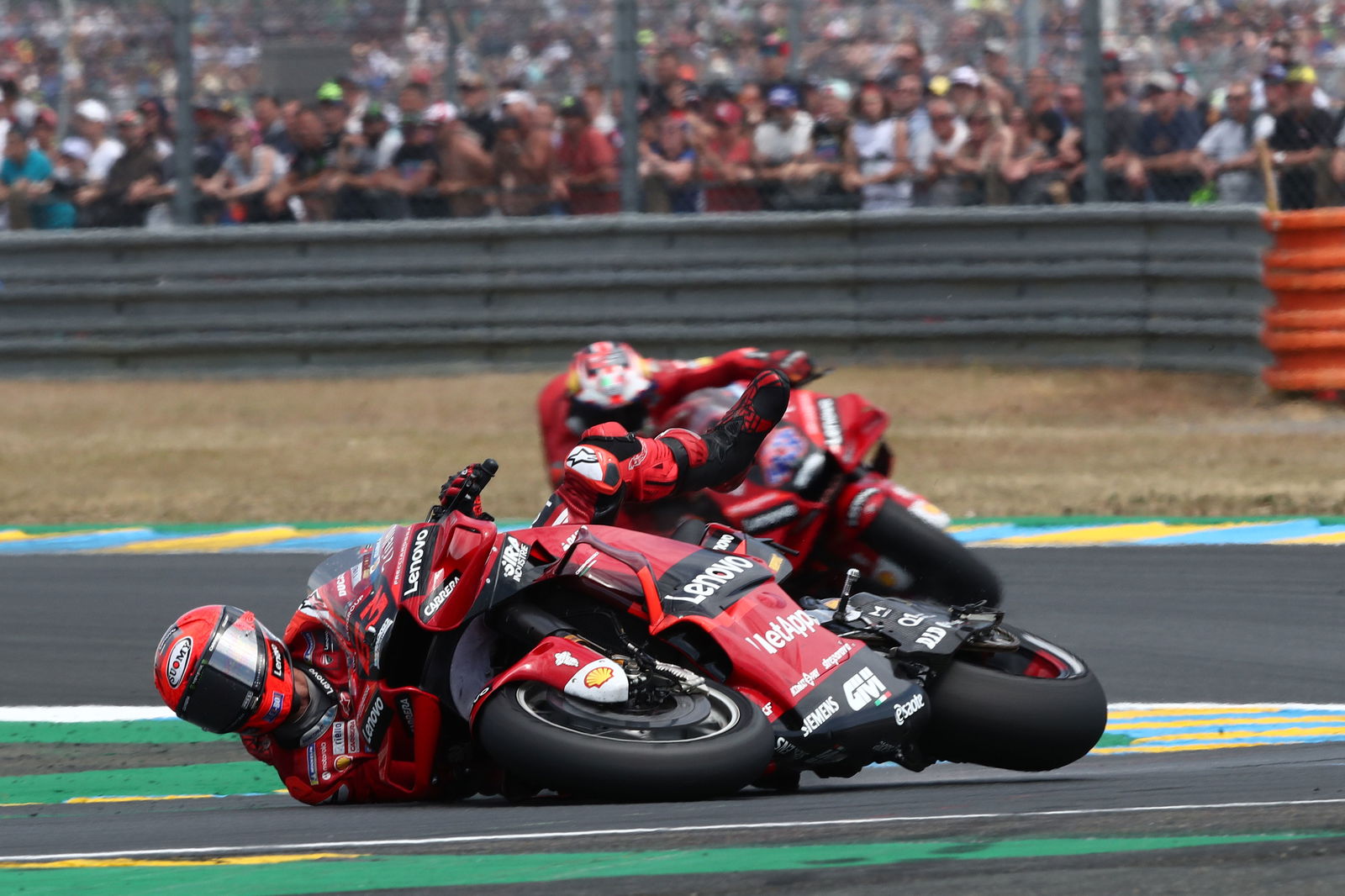
It was also the front tyre which played its part in Francesco Bagnaia’s retirement. He locked the front into turn eight on lap 21, and four corners after he crashed at turn 13 - the penultimate corner of the lap - despite reportedly going slower through that corner.
It was a disaster for Bagnaia, whose win two weeks previously in Jerez looked to be the start of his championship retaliation after a bit of a false start in the first five races. Going into Le Mans, Bagnaia had 33 points to make up on Quartararo, and now his deficit is 46.
Speaking of 46, Bagnaia’s French collapse had an undeniable sense of similarity with Valentino Rossi’s 2017 debacle. Then, Rossi was fighting with his teammate, Maverick Vinales, for the victory in Le Mans, after the Spaniard had won two of the first four races. Rossi, eager to get one over his new teammate, ran straight on at turn eight on the final lap, and, in his rush to get back to Vinales’ rear wheel for a turn 13 attack, crashed at turn 11. Bagnaia got two turns further than Rossi after his turn eight mistake, but the result was the same: zero points, and ground lost in the mental battle between himself and the rider who is likely to be his teammate in 2023.
That rider is Bastianini, who looks much stronger right now than both of his rivals for that seat: Jack Miller and Jorge Martin. Miller has taken two podiums to start the season, but in comparison to the three wins of the Italian (emphasis on the nationality), the decision for Ducati between the two seems straightforward. And, for Jorge Martin, a fifth crash in seven races would appear to be an ending to his chances of a factory Ducati seat for 2023.
What might save Miller in this battle for the second factory seat is that he has proven himself to be a strong wingman. Miller is probably not going to be able to win a MotoGP World Championship, but at the same time he has not once become a barrier between another Ducati rider and their title chances, while also remaining in contention for podiums and race wins himself.
For Ducati’s part, their loss is that they have already signed Bagnaia. Had they waited for Bagnaia to prove himself in 2022, they might be in the situation where they were re-signing Miller who would become the wingman of Bastianini in 2023. Bastianini and Bagnaia both have the potential to win a MotoGP World Championship, but it is Bastianini who is performing better under that weight at the moment.
Loser - HRC
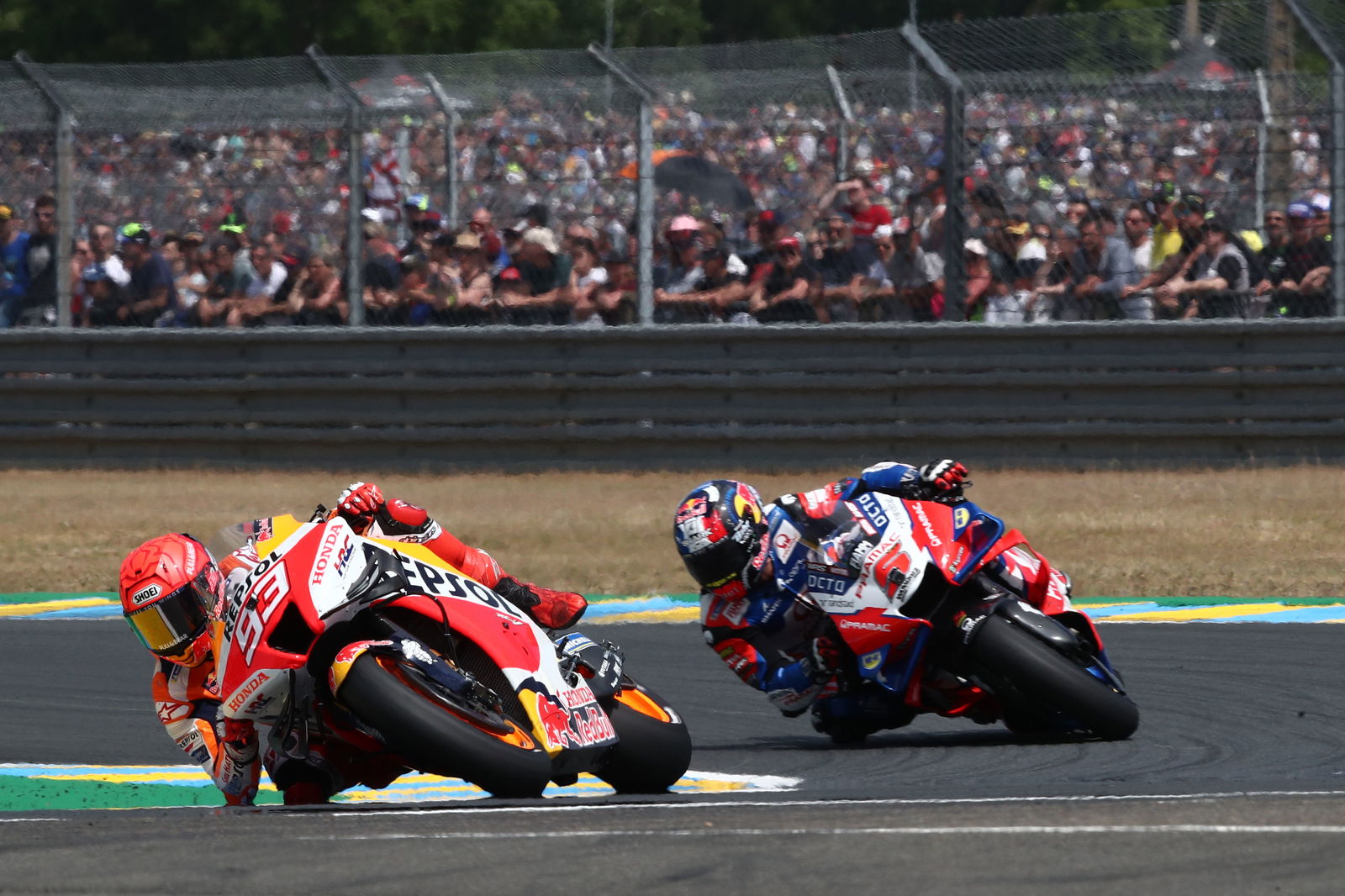
HRC also lost in Le Mans. Their weekend started well, with Pol Espargaro topping FP1 on Friday morning. But that positivity went away in the afternoons, as the higher track temperatures took away Honda’s edge grip, so they could not turn.
Marc Marquez had perhaps one of the loneliest rides of his career to sixth. After the race, the Repsol Honda rider said, “I said yesterday that with a good race our position would be fifth, sixth or seventh and we finished sixth – even if our real position was ninth because there were some falls.
“It was a solid race at our pace, but it was a really long race and I wasn’t able to push towards the end. All we can do is keep on working, that’s the best way to improve for the future. My target is not just to be finishing as top Honda, it’s to be finishing on the podium but we are not there yet. There’s still more to understand in the next races to close the gap to the front.”
HRC will work their new bike out - this is HRC, and there is a reason their Moto3 project is suffering compared to KTM. The preseason showed that there is potential in the new RC213V, but such a radical redesign of their whole bike is obviously going to take time to work out.
Further complicating matters is that Marc Marquez is still unable to approach a race weekend in a normal way, owing to continuing weakness in his right shoulder, which means he spends Friday and Saturday saving energy for the race on Sunday, which limits the scope for development work, and for Marquez to flatter the Honda as he has in the past.
Loser - The Racing
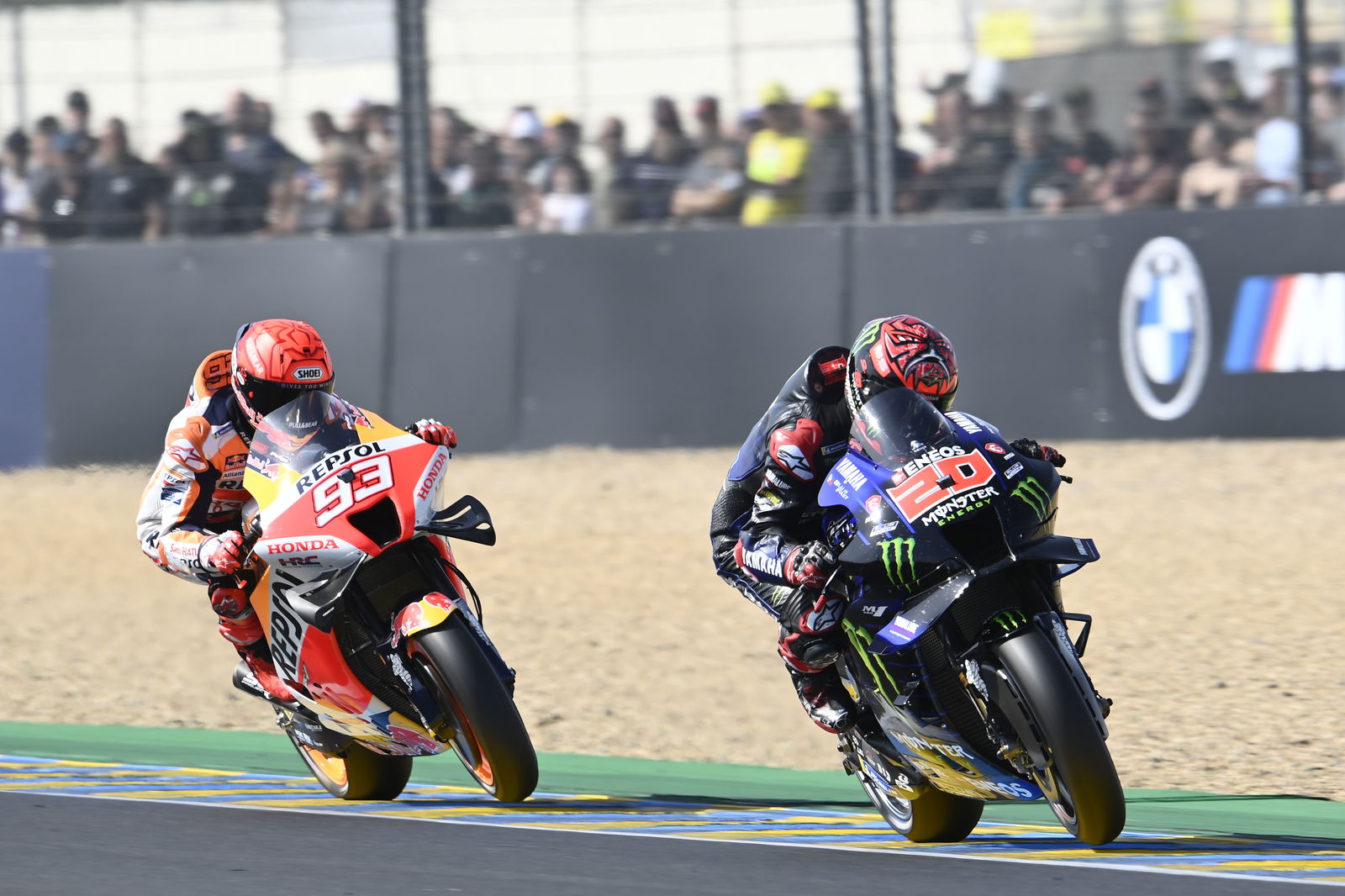
Another of Marquez’ problems in Le Mans was not one unique to either him or Honda, but one which is affecting MotoGP as a whole.
A Crash.net article reports that, after the French race, Marquez said, “With the actual motorbikes, or the situation in this category, to overtake somebody now you need to do a very aggressive move.”
The problem comes from the ride height devices and aerodynamics. The ride height devices put more stress on the front tyre, because the weight transfer to the front is more aggressive and sudden when the ride height device pops back up, compared to when it is not used.
Additionally, the ride height devices mean that the riders are approaching the braking areas faster, because of the extra acceleration, and they are able to brake later and harder, because of the faster weight transfer.
Additionally, the aerodynamic wings create turbulence - which has been the cause of Formula One’s lack of overtaking for decades - which cause bikes to move around in the slipstream, and means it is harder to follow closely.
The combination of wings and ride height devices have made braking zones more violent, as well as shorter. Shorter braking zones make it harder to overtake cleanly, because the time spent braking while the bike is upright is reduced, which means a larger proportion of the braking is done with lean angle, which also stresses the front tyre more.
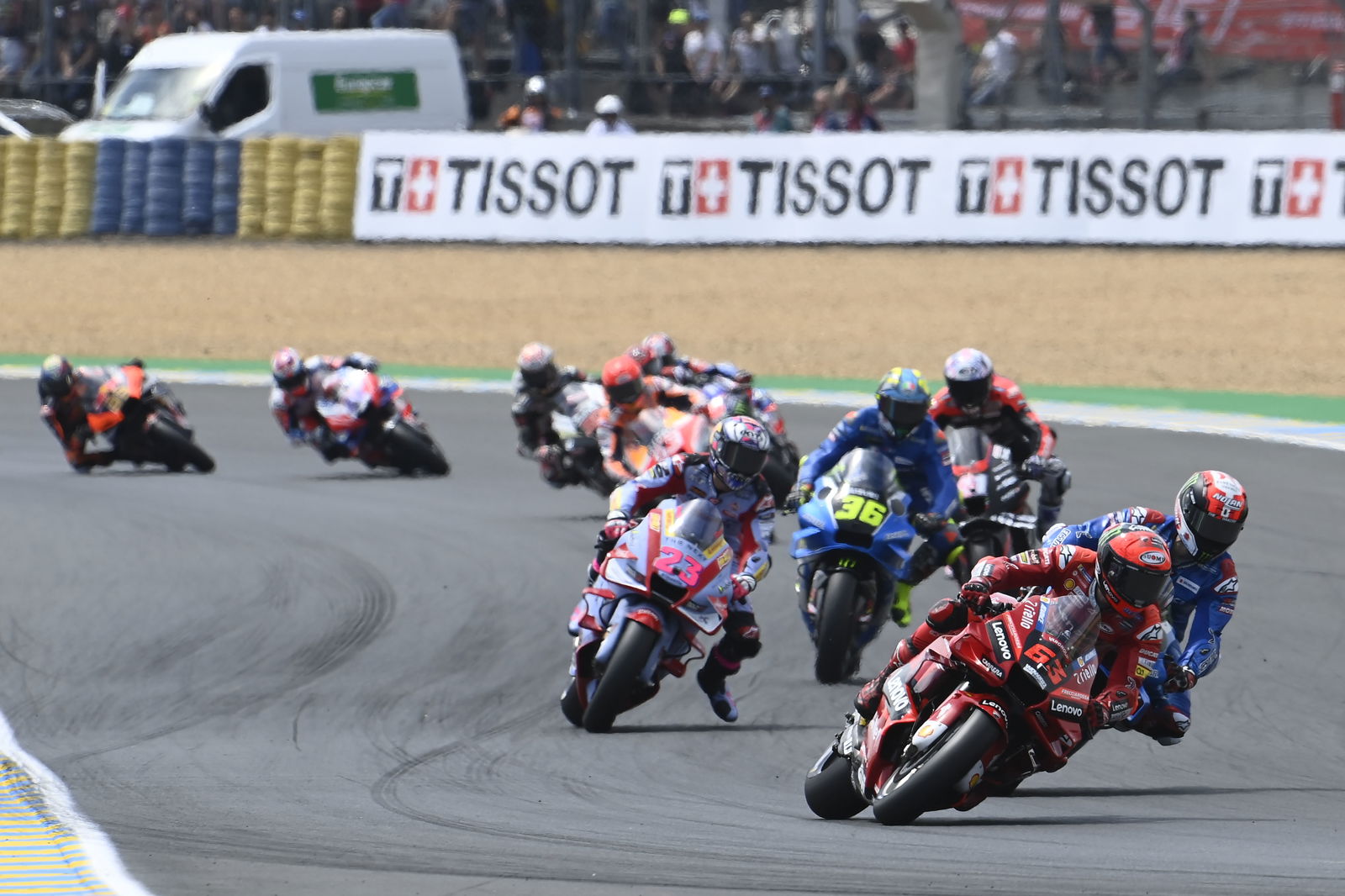
So, it is harder to follow bikes in MotoGP now, and harder and more risky to out-brake rivals. This was evident in Jerez, when Aleix Espargaro, Marc Marquez and Jack Miller were all unable to pass each other for 15 laps, before Marquez invented something unusual in turn five. Also in Jerez, Fabio Quartararo spent the entirety of the 25 laps unable to even show his front wheel to Francesco Bagnaia, who led from lights-to-flag. Quartararo also had a similar problem in Le Mans, where he spent most of the final part of the race right behind Aleix Espargaro, without ever being able to make a pass.
Unless someone makes a mistake, overtaking in MotoGP requires either a large pace advantage, or a straight line speed advantage. This is why the Ducati riders are often not complaining about overtaking, because they are the only riders on the grid who can pull alongside other bikes in the straights, before they get to the braking zones.
The solution, from MotoGP’s point of view, seems simple. If ride height devices and aerodynamic wings are banned, the racing will get better. But, it is less simple than that, because factories (especially Ducati) have put a lot of time, money, resources and effort into designing the bikes to have wings and ride height devices. In Jerez, Miguel Oliveira had to qualify without using the ride height device for a reliability issue, but because the electronic maps were set up for the ride height device to be used, the power was unmanageable on corner exits, and because he had to brake earlier and softer, the engine braking did not work correctly.
It would be a similar situation without the wings, which, incidentally, Oliveira’s KTM teammate, Brad Binder, was 50%-without in Le Mans, after early contact with Johann Zarco. Wings prevent wheelie, and also give additional front loading in the first part of the hard braking zones, as well as in the fast corners. So, the setup would have to be totally changed for a bike without wings, which would not accelerate, decelerate, or turn as well.
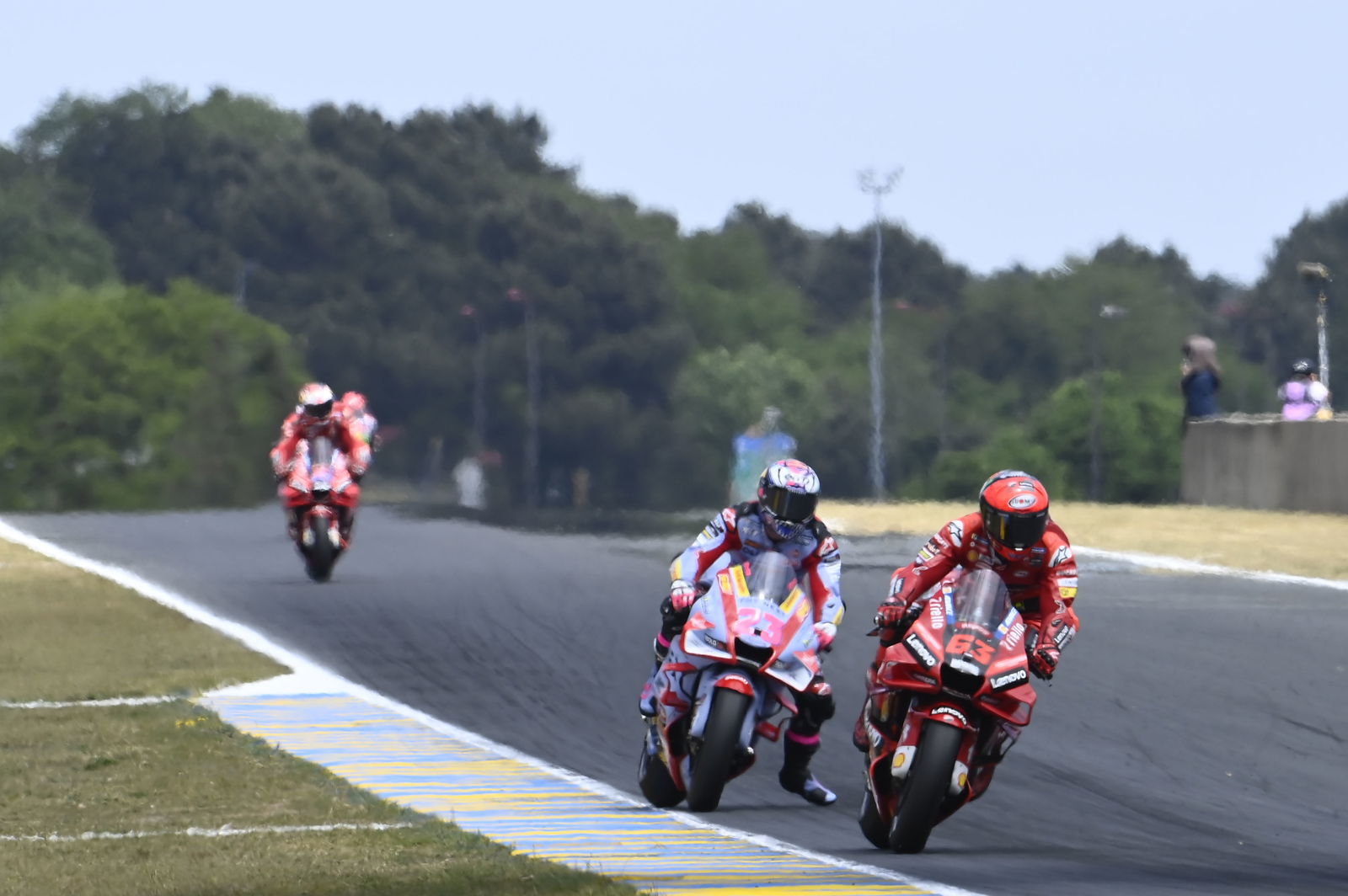
From the fans’ perspective, these seem like irrelevancies. And that is hard to disagree with. Surely, adapting the bike, and riding styles, to changing regulations is a part of the sport, and, it is not like nobody has any idea how a bike will behave without wings, or without a ride height device.
But, from the perspective of the factories, they know that wings and ride height devices only exist in MotoGP because of the unified electronics that have been used since 2016. Where the factories lost out on performance from the electronics in 2016, they gained it back in wings, and then in ride height devices. Banning them would simply increase costs as the factories looked for the replacement technologies of the wings and RHDs.
At the same time, just because you know there will be more technology developed down the line, does not necessarily mean that the current technology should stay. It is unquestionable that ride height devices and aerodynamic wings are having a negative impact on racing - and on safety, because of the increased speeds - but it is unlikely that the factories will unanimously agree to have them removed.
